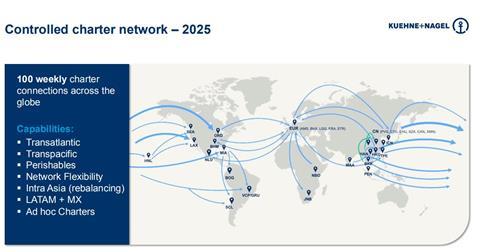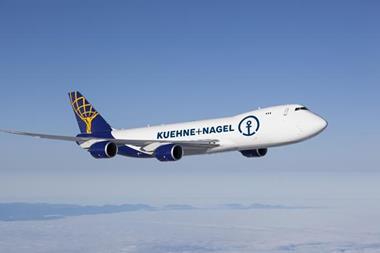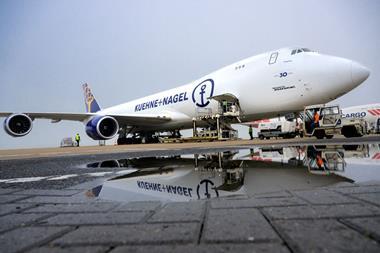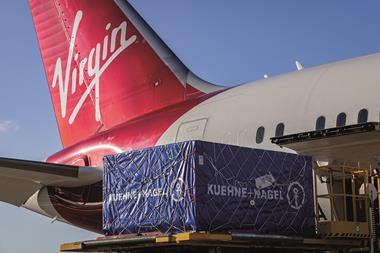
© 2024 Kuehne+Nagel. All rights reserved
Kuehne+Nagel (K+N) has outlined a positive outlook for the air cargo market based on growing demand, market volatility and capacity constraints, while it is also confident it will regain the top spot in airfreight forwarding should it lose the accolade to DSV.
Speaking during a capital markets day presentation, Yngve Ruud, executive vice president, air logistics, said that the air cargo market - excluding e-commerce - will grow by 3% from 2025 to 2028, outstripping freighter fleet growth of 1%.
Much of this growth will be driven by K+N’s key verticals, such aerospace, perishables, pharmaceuticals, semiconductors and data service centres, he said.
"Trends such as a growing world population are expected to drive demand for perishable goods," Ruud explained. "The aerospace sector anticipates continued growth due to further development of travel and tourism.
"Investment in semi-conductor equipment is projected to grow at a compound annual growth rate (CAGR) of 8-9% between 2025 and 2028 and the logistics sector for data and service centres, which we announced our new product in 2024, is also poised for growth, with spending on public cloud services projected to increase by 22% only in 2025 largely driven by investment in Ai technology."
Meanwhile, he added that volatility in trade patterns as a result of geopolitical developments and the deployment of tariffs would also drive the need for reliable airfreight services to maintain resilient supply chains.
On the supply side, Ruud said that freighter capacity utilisation is already high and would come under further pressure due to an ageing fleet and limited delivery of new aircraft.
"The phase-out of ageing widebody freighters will create a gap in the large widebody sector," he said. "In recent years approximately 4% of the fleet in service has been phased out, we anticipate this rate will increase to 5-6% over the next few years due to the rise of the average age of the global fleet."
He said that in 2018, 8% of the worldwide freighter fleet was more than 30 years old and this figure is expected to reach 17% in 2025.
"In addition, we have supply constraints in new deliveries. As a consequence, the widebody freighter fleet is projected to grow only by 1% annually to 2028."
Elsewhere, the forwarder looks set to lose its position as the world's largest airfreight forwarder in the coming years if DSV's takeover of DB Schenker proves successful.
However, K+N is confident it will regain the top spot based on 'bolt-on' acquisitions to expand in specific sectors and organic growth.
"Scale matters," Ruud said. "Historically, our growth and investment led us to the number position in 2021 and we have successfully defended that position through to today. If we are surpassed for a brief period of time in the near future, we firmly believe we will regain that leading position."
Growth will be fuelled by investment in services for specific sectors, such as aerospace, semiconductors, server & data centres, healthcare, and perishables; the expansion of its charter network and gateways to allow it to adapt to changing patterns of trade; investments in people and technology; and bolt-on acquisitions.
He pointed out that in 2019, the company's charter network had 13 weekly charter connections. This year that will grow to 100 weekly charter connections.

In terms of gateways, the company added three new locations last year, has plans to add a further eight this year and four more beyond 2025.
Following the presentation, investment bank Jeffries said that overall Kuehne+Nagel management was setting more realistic growth targets.
"It was clear from the outset that management are very aware that previous targets were too ambitious and that any targets provided should be achievable," Jeffries said. "This was evident from the outset (the day was titled 'How We Deliver'), but also came through in conversations with management. This is understandable as a clear focus from the market was that previous targets were not met."
The investment firm also said that the presentation supported its view that airfreight would outperform seafreight this year.
"More air capacity being secured on a longer term basis is indicative of a positive view on the market & enables faster delivery times & higher customer service," Jeffries said in its investor note.


















